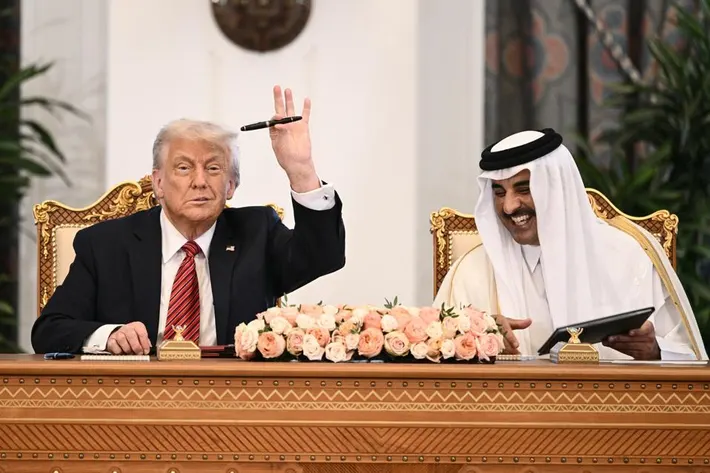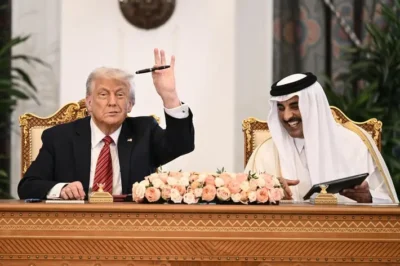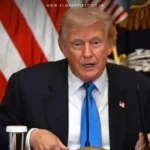
Strengthening U.S.-Saudi Ties
Former President Donald Trump has embarked on a diplomatic mission to the Middle East, underscoring a commitment to fortify U.S.-Saudi relations. During his visit, Trump engaged in discussions with Saudi Crown Prince Mohammed bin Salman, emphasizing the importance of mutual economic interests and regional stability. This visit marks a significant step in revitalizing ties that had experienced strains in recent years.
Business Ventures and Economic Collaborations
A focal point of Trump’s visit was the promotion of business ventures aimed at enhancing economic ties between the United States and Saudi Arabia. Notably, the Trump Organization has entered into agreements with Saudi real estate developers to construct luxury towers in cities like Jeddah and Dubai. These developments are expected to bolster economic cooperation and create opportunities for American businesses in the region. Additionally, significant defence deals were finalized, including a $1.2 trillion agreement with Qatar Airways for the purchase of Boeing aircraft, highlighting the deepening economic partnerships.
Advocating for Non-Interference in Regional Affairs
Trump articulated a policy of non-interference in the internal affairs of Middle Eastern nations, advocating for a hands-off approach that respects the sovereignty of regional states. This stance reflects a shift from previous administrations and aims to foster an environment where countries can address their issues independently, without external pressures. Trump’s approach is seen as a move towards a more pragmatic and less interventionist U.S. foreign policy in the Middle East.
Encouraging Regional Cooperation
During his discussions, Trump encouraged Saudi Arabia to consider joining the Abraham Accords, a series of normalization agreements between Israel and several Arab nations. While the response was measured, the suggestion indicates a potential shift towards broader regional cooperation and peace initiatives. Trump’s advocacy for these accords underscores his administration’s commitment to fostering stability and collaboration in the Middle East.
Addressing Human Rights Concerns
Despite the emphasis on economic partnerships and regional cooperation, Trump’s visit has raised questions regarding human rights issues in Saudi Arabia. Critics argue that the pursuit of strategic and economic interests should not overshadow concerns about governance and human rights practices. However, Trump has maintained that such matters should be addressed through diplomatic channels and that the primary focus should be on fostering strong bilateral relations.
Implications for U.S. Foreign Policy
Trump’s Middle East visit signifies a potential shift in U.S. foreign policy, moving towards a model that emphasizes economic partnerships and regional stability over direct intervention. This approach may redefine America’s role in the Middle East, focusing on collaboration and mutual interests. The outcomes of this visit could have lasting implications for U.S. relations with Middle Eastern nations and influence future diplomatic strategies in the region.
Conclusion
Former President Donald Trump’s visit to the Middle East underscores a strategic pivot towards strengthening economic ties and advocating for non-interference in regional affairs. Through business ventures and diplomatic engagements, Trump aims to foster a new era of cooperation and stability in the Middle East, balancing economic interests with a commitment to regional sovereignty. The long-term effects of this approach will unfold in the coming years, potentially reshaping U.S. foreign policy in the region.









































Leave a Reply